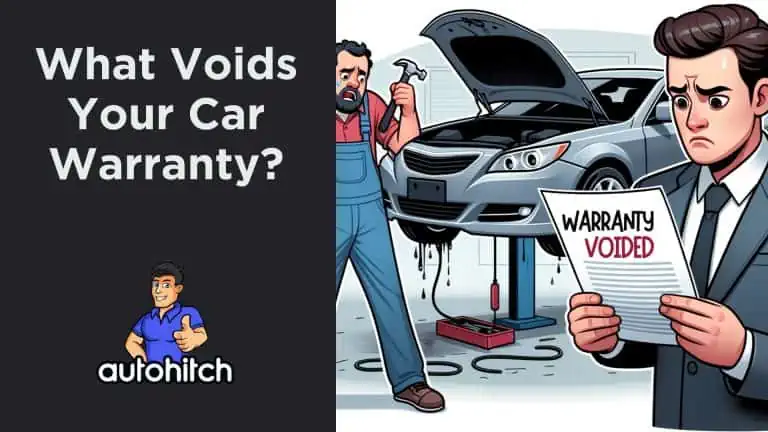A car warranty provides repair coverage in case of defects during the warranty period.
But what voids a car warranty before the coverage period ends?
The truth is that there are all sorts of rules and requirements for you to maintain your warranty and most people have no idea how easy it is to get it voided.
To help you keep your warranty fully intact I wrote the article below that lists 15 common reasons you might void your cars warranty.
Table of Contents
6 Actions That Would Void a Car Warranty
Some actions can cause your entire car warranty to be completely voided by the manufacturer or warranty provider. If this happens, you will no longer be able to file any claims for repairs under the warranty. Here are the most common situations that can void a car warranty entirely:
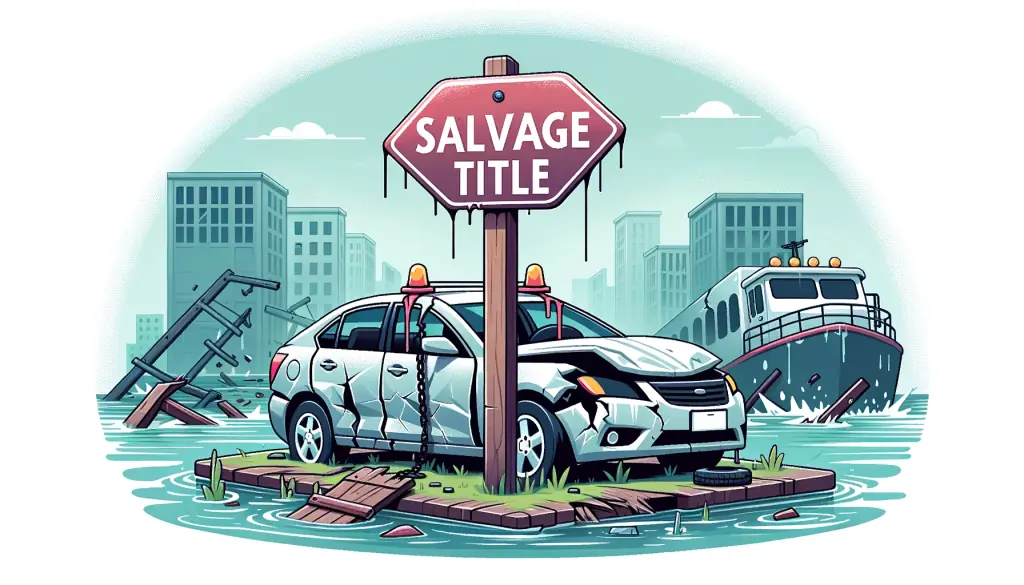
- Getting a salvage or rebuilt title after a major accident – If your car is deemed a total loss by an insurance company after a collision or flood damage, the warranty is typically voided entirely. This is because the vehicle has undergone major repairs that were not approved by the manufacturer.
- Misusing the vehicle – Actions like racing your car, overloading it beyond capacity, or taking it off-roading can be considered misuse. These activities put extra stress on the components. Most warranties prohibit misuse and will void coverage if it occurs.
- Sustaining environmental damage – If your car is damaged by a natural disaster like a flood, fire, hailstorm, or earthquake, the warranty will be voided. The manufacturer won’t cover repairs needed due to environmental events.
- Disconnecting or altering the odometer – If the odometer has been tampered with or replaced, the dealership can’t verify the true mileage on your car. This type of odometer fraud usually results in a voided warranty.
- Using improper fluids – Putting in the wrong oil, contaminated gas, or other incorrect fluids can cause engine damage. Your warranty won’t cover damage caused by using improper fluids.
- Skipping scheduled maintenance – Routine services like oil changes, fluid flushes, and tune-ups are required to keep your warranty valid. If you neglect these services, any resulting damage won’t be covered.
9 Situations That May Void Specific Parts of Your Warranty
In other cases, your entire warranty won’t be voided, but coverage for certain repairs may be denied. Here are some examples of situations that can lead to denial of specific repair claims:
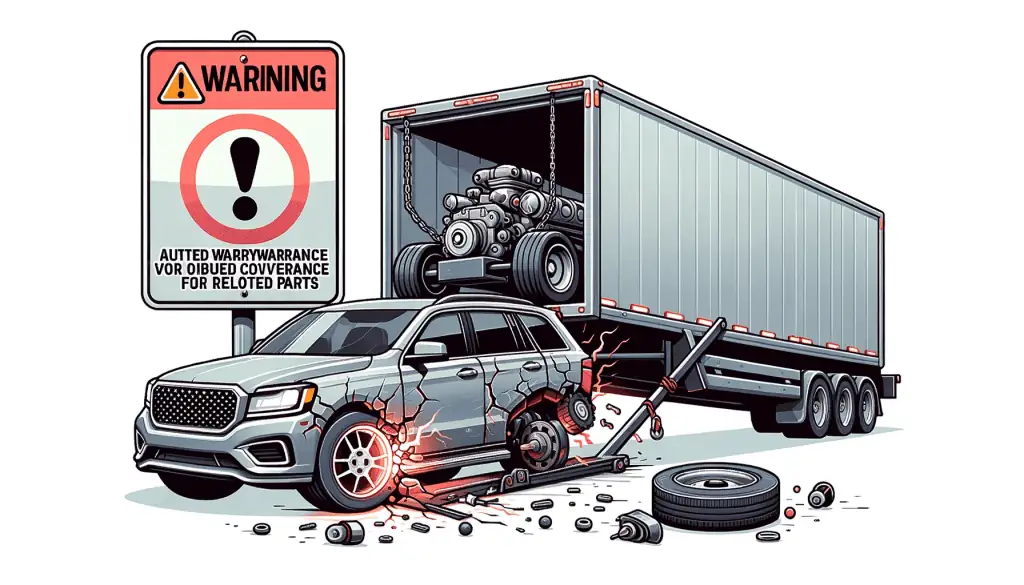
- Installation of aftermarket parts – Parts like a cold air intake, wheels, or exhaust system are not approved by the manufacturer. If an aftermarket part is installed incorrectly or causes a failure, warranty coverage may be denied for affected components.
- Engine tuning or ECU remapping – Altering engine performance via “chipping” or remapping the ECU can put extra stress on engine components and lead to failures. Related repairs likely won’t be covered.
- Unapproved third-party repairs – Any repair shop can service your car, but improper repairs done outside certified shops may not be covered if damage results.
- Damage from poor maintenance – Not changing the oil on time can cause engine sludge, which can lead to denied repair claims.
- Exceeding towing capacity – Towing too heavy of a load stresses drivetrain components and voids related coverage.
- Removing emissions equipment – Taking off the catalytic converter, EGR valve, or other emissions components voids the emissions warranty.
- Adding body kits – Body kits and exterior alterations can void anti-corrosion warranties if they cause rust or paint issues.
- Lowering vehicle height – Lowering the suspension voids shock and strut coverage if it causes premature wear.
- Tinting windows – Adding aftermarket tinting voids the window warranty if damage like cracks occur.
6 Tips to Keep Your Car Warranty Intact
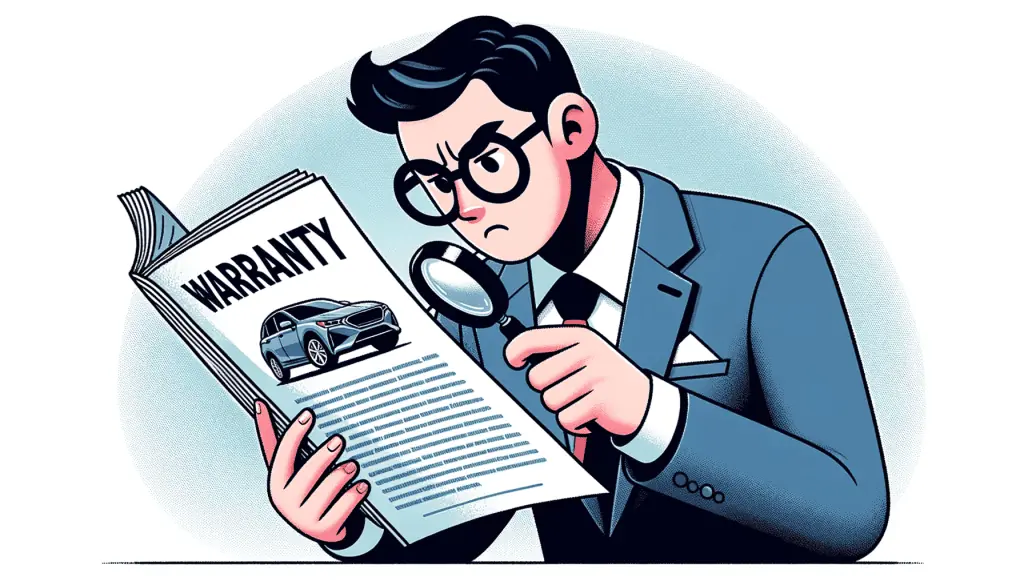
You can avoid many warranty issues by taking proactive steps:
- Read all warranty terms – Understand exclusions, limitations, and requirements to avoid violations.
- Follow the maintenance schedule – Stick closely to factory-recommended service intervals.
- Use OEM parts – Installation of aftermarket parts risks voiding related coverage.
- Keep detailed service records – Meticulously document all maintenance and repairs.
- Don’t alter the odometer – Changing mileage voids the entire warranty.
- Appeal wrongful denials – If you feel a claim was unfairly denied, start an appeals process.
Consider an Extended Auto Warranty

Once your factory warranty expires after a few years, an extended auto warranty can provide continued protection:
- Coverage beyond factory warranty – Extended warranties pick up where factory coverage leaves off.
- Offered by third parties – You can get coverage from dealers, manufacturers, or independent providers.
- Compare plans carefully – Read the fine print to understand what’s covered and excluded.
- Acts like manufacturer warranty – It covers repairs of vehicle components, similar to the original warranty.
Before factory coverage expires, compare leading extended warranty providers to find the optimal plan for your vehicle and budget.
Look for providers with strong reputations that offer customizable plans.
My Personal Experience With Extended Warranties
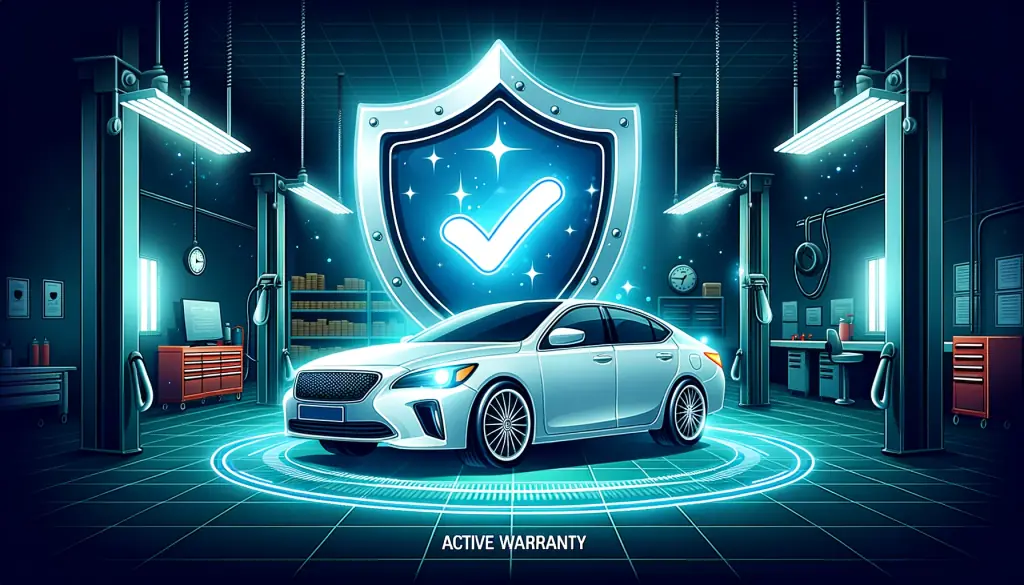
I emphasized looking for providers with a good reputation for a reason – I had a poor experience with an extended warranty provider called Car Shield.
After having Car Shield coverage for about seven months, my air conditioning unit completely failed. I took my car to my trusted mechanic for inspection. He determined that contamination throughout the entire A/C system meant the whole unit needed replacement. A new compressor alone would fail again quickly if the contamination wasn’t addressed.

However, Car Shield disagreed with my mechanic’s assessment. They sent their own inspector, who said they would only approve partial repair of the A/C unless each individual component was disassembled to prove contamination. Tearing apart a 9-year-old A/C system just for inspection wasn’t practical.
To make matters worse, the only parts they would approve the dealership to buy were cheap Chinese parts, not the parts my mechanic recommended.
So, in the end, I paid the full cost of the proper A/C repair and replacement myself. After this poor claims experience, I canceled my Car Shield extended warranty policy.
Conclusion

In summary, being aware of what voids a car warranty is key to avoiding denials for expensive repairs. Follow your maintenance schedule diligently and only use approved replacement parts and fluids. Consider purchasing an extended auto warranty as factory coverage nears expiration to keep protection intact. With some diligence, you can maximize the value of your vehicle’s warranty.

